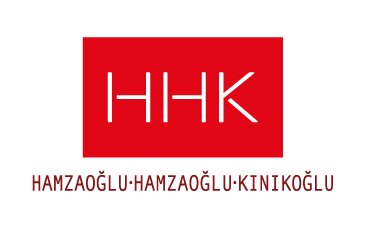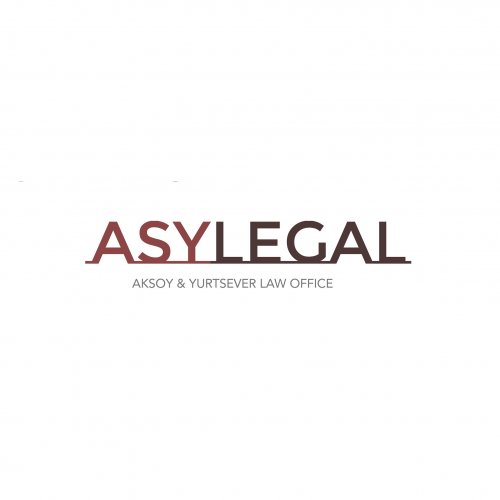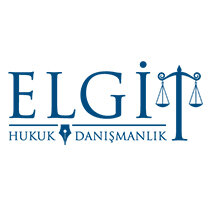Best Sports Law Lawyers in Turkey
Share your needs with us, get contacted by law firms.
Free. Takes 2 min.
Or refine your search by selecting a city:
List of the best lawyers in Turkey
About Sports Law in Turkey
Sports Law in Turkey is a specialized area of law that deals with various legal issues related to sports, including the governance of sports organizations, athlete contracts, anti-doping regulations, and dispute resolution in sports. The field is governed by Turkish national legislation as well as international sports law frameworks such as those established by the International Olympic Committee (IOC) and Federation Internationale de Football Association (FIFA). Turkey's unique geographical and cultural position makes it an important player in international sports, requiring comprehensive legal structures to manage its sporting affairs effectively.
Why You May Need a Lawyer
There are several common situations where individuals and organizations may require legal assistance in Sports Law:
- Contract negotiations and disputes for athletes, coaches, or teams.
- Intellectual property issues relating to endorsements or brand management.
- Understanding and complying with national and international doping regulations.
- Litigation or arbitration involving injuries or other civil claims in sports.
- Compliance with labor laws for sports organizations hiring foreign athletes or staff.
- Disciplinary hearings for athletes, coaches, or teams.
Local Laws Overview
The sports law framework in Turkey is governed by several key regulations:
- Law No. 5894: This law structures the organization and functions of the Turkish Football Federation, crucial for football-related legal matters.
- Turkish Civil Code and Commercial Code: These provide overarching legal principles that apply to contracts and commercial dealings in sports.
- The Anti-Doping Code: Aligns with international standards and includes protocols for testing and sanctions against violations.
- Law on Youth and Sports Services: Governs the management of sports facilities and organization of sporting events in Turkey.
- Regulations of various sports federations: These set out the internal governance and disciplinary procedures for different sports in Turkey.
Frequently Asked Questions
What is the main sports regulatory body in Turkey?
The Ministry of Youth and Sports and the Turkish Football Federation are the principal regulatory bodies responsible for sports governance in Turkey.
Are there special courts for sports-related disputes in Turkey?
Sports-related disputes may be handled by the Court of Arbitration for Sport (CAS) or local arbitration panels designated by sports federations, depending on the matter and agreements in place.
How is player transfer regulated in Turkey?
Player transfers in Turkey must comply with both national rules set by the Turkish Football Federation and international regulations established by FIFA, including transfer windows and agent requirements.
What are the rules regarding doping control in Turkish sports?
Doping controls in Turkish sports follow both national anti-doping regulations and the World Anti-Doping Agency's (WADA) standards, with penalties for violations including suspension and fines.
Can foreign athletes easily obtain work permits in Turkey?
Yes, foreign athletes can obtain work permits, but they must comply with Turkish immigration and labor regulations, often facilitated by their clubs or sponsors.
What are the legal implications of sports injuries in Turkey?
Sports injuries may lead to civil liability claims, especially if caused by negligence or inadequate safety measures. Clubs and event organizers are particularly attentive to liability issues.
How are broadcasting rights protected under Turkish law?
Broadcasting rights are protected under intellectual property laws, with agreements often needing to be negotiated and registered with relevant regulatory bodies.
What is the role of the Turkish Sports Arbitration Panel?
The Turkish Sports Arbitration Panel acts as a local body to resolve disputes between clubs, athletes, and federations, offering an alternative to litigation.
How are endorsement deals legally regulated in Turkish sports?
Endorsement deals must adhere to contractual laws and regulations, often involving compliance with advertising rules and intellectual property considerations.
How do clubs manage tax obligations for international athletes?
Clubs must carefully manage tax obligations, which may involve double-taxation treaties and proper reporting to Turkish tax authorities to ensure compliance.
Additional Resources
For those seeking further information or assistance in Sports Law, consider reaching out to the following organizations:
- The Ministry of Youth and Sports: Provides regulatory guidance and resources on sports-related matters in Turkey.
- Turkish Football Federation (TFF): Offers insight and regulations for football-related legal issues.
- The Court of Arbitration for Sport (CAS): An international institution that resolves legal disputes in the field of sport through arbitration.
- World Anti-Doping Agency (WADA): Guides on compliance with anti-doping policies and regulations in sports.
Next Steps
If you require legal assistance in the field of Sports Law in Turkey, consider the following steps:
- Identify your specific legal need: Understand the nature of your issue whether it's contractual, regulatory, or litigation-related.
- Consult a specialist: Seek out a sports law attorney or a law firm with experience in the specific area of sports law relevant to your case.
- Gather necessary documentation: Collect all relevant contracts, correspondence, and records to assist your legal advisor in evaluating your case.
- Consider mediation or arbitration: Explore the feasibility of resolving disputes through mediation or arbitration, which can be less adversarial than court litigation.
- Stay informed: Keep abreast of any changes in sports law regulations which could impact your case or legal rights.
Lawzana helps you find the best lawyers and law firms in Turkey through a curated and pre-screened list of qualified legal professionals. Our platform offers rankings and detailed profiles of attorneys and law firms, allowing you to compare based on practice areas, including Sports Law, experience, and client feedback.
Each profile includes a description of the firm's areas of practice, client reviews, team members and partners, year of establishment, spoken languages, office locations, contact information, social media presence, and any published articles or resources. Most firms on our platform speak English and are experienced in both local and international legal matters.
Get a quote from top-rated law firms in Turkey — quickly, securely, and without unnecessary hassle.
Disclaimer:
The information provided on this page is for general informational purposes only and does not constitute legal advice. While we strive to ensure the accuracy and relevance of the content, legal information may change over time, and interpretations of the law can vary. You should always consult with a qualified legal professional for advice specific to your situation.
We disclaim all liability for actions taken or not taken based on the content of this page. If you believe any information is incorrect or outdated, please contact us, and we will review and update it where appropriate.
Browse sports law law firms by city in Turkey
Refine your search by selecting a city.

















